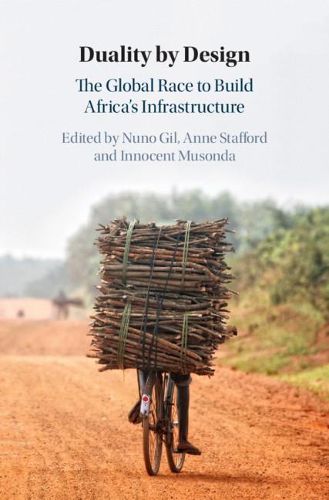Readings Newsletter
Become a Readings Member to make your shopping experience even easier.
Sign in or sign up for free!
You’re not far away from qualifying for FREE standard shipping within Australia
You’ve qualified for FREE standard shipping within Australia
The cart is loading…






Africa’s rapid population growth and urbanisation has made its socioeconomic development a global priority. But as China ramps up its assistance in bridging Africa’s basic infrastructure gap to the detriment of institutions building, warnings of a debt trap have followed. Building upon an extensive body of evidence, the editors argue that developing institutions and infrastructure are two equally desirable but organisationally incompatible objectives. In conceptualising this duality by design, a new theoretical framework proposes better understanding of the differing approaches to development espoused by traditional agencies, such as the World Bank, and emergent Chinese agencies. This new framing moves the debate away from the fruitless search for a ‘superior’ form of organising, and instead suggests looking for complementarities in competing forms of organising for development. For students and researchers in international business, strategic and public management, and complex systems, as well as practitioners in international development and business in emergent markets.
$9.00 standard shipping within Australia
FREE standard shipping within Australia for orders over $100.00
Express & International shipping calculated at checkout
Africa’s rapid population growth and urbanisation has made its socioeconomic development a global priority. But as China ramps up its assistance in bridging Africa’s basic infrastructure gap to the detriment of institutions building, warnings of a debt trap have followed. Building upon an extensive body of evidence, the editors argue that developing institutions and infrastructure are two equally desirable but organisationally incompatible objectives. In conceptualising this duality by design, a new theoretical framework proposes better understanding of the differing approaches to development espoused by traditional agencies, such as the World Bank, and emergent Chinese agencies. This new framing moves the debate away from the fruitless search for a ‘superior’ form of organising, and instead suggests looking for complementarities in competing forms of organising for development. For students and researchers in international business, strategic and public management, and complex systems, as well as practitioners in international development and business in emergent markets.